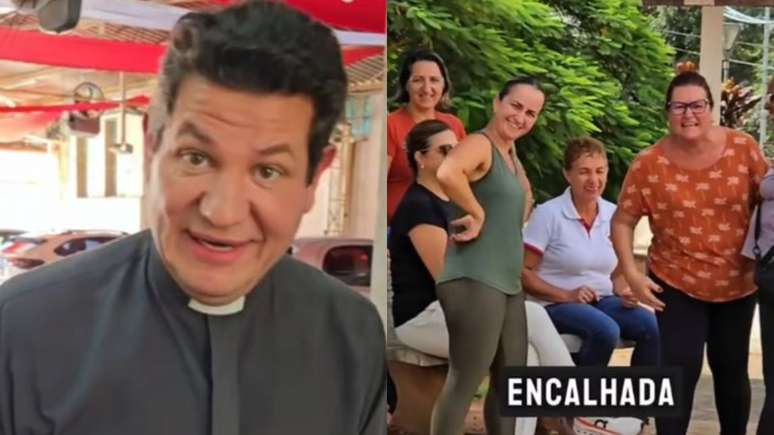One of the main points of the proposal – currently being examined by the Senate – turns the deadline for making treatment available into law
To a greater or lesser extent, every cancer patient’s journey is, in itself, challenging. Imagine, then, living without a clear infrastructure that offers adequate conditions for diagnosis and treatment – a harsh reality often faced by thousands of Brazilians in the Unified Health System (SUS). The good news? These Brazilians could be about to witness a very important step by our country towards a scenario that will allow them to face cancer in a more coordinated, humane and effective way.
On August 9, the Chamber of Deputies approved, as a matter of urgency, bill 2.952/22 (https://www.camara.leg.br/proposicoesWeb/fichadetramitacao?idProposicao=2341786). Establishes the National Policy for Cancer Prevention and Control (PNPCC) under the SUS, with the objectives of reducing the incidence of the disease, ensuring comprehensive care, improving the quality of life of diagnosed patients and reducing mortality and disabilities caused. To this end, it proposes a series of general principles and guidelines, which concern topics such as:
• Recognition of cancer as a preventable chronic disease;
• Access to vaccinations for prevention;
• Timely identification and diagnosis;
• Organization of regionalized and decentralized care networks;
• Access to adequate care within 180 days;
• Complete assistance offer;
• Multidisciplinary care and psychological support for people with suspected or confirmed cancer;
• Rehabilitation and palliative care for diagnosed patients.
Next step: vote in the Senate
Currently, bill 2.952/22 is being voted on (no date set yet) in the federal Senate. If approved, it will go to the President of the Republic for the sanction, which will come into force 180 days after the publication of the future law. If there are changes in its content, it goes back to the Chamber of Deputies to decide whether to approve its version or that of the Senate, sending it for sanction.
Aware of this possibility of back and forth, organized civil society groups involved in the case are now making it a priority to pressure senators to pass the text without changes. First of all, accelerate the transformation of the project into law. Secondly, because they understand that it is already structured in a way that allows for further refinements.
«It is extremely important that the PL is sanctioned as soon as possible. It addresses some fundamental issues, such as the single database and the patient’s own path, structuring a navigator that plans a biopsy, takes the result, forwards it, indicates where to go and when to go… This will make people’s lives much more simple, why do we feel so lost when treating cancer,” says Joana, who faced breast cancer in 2007.
Standardization of the protocol
Other salient points of the project concern the standardization of protocols and the centralization at the Ministry of Health of the purchase of medicines used in the treatment of cancer, for which there is currently no definition of purchase. With the new proposal, it will be up to the department to transmit them to the state health departments and then distribute them to the SUS’s authorized oncology treatment facilities.
“This will ensure more democratic access to care, because today not all available drugs are compulsory, the hospital buys them if it wants. In other words, the patient’s life depends on his postcode and the care offered by the hospital he serves that CAP. code,” he reasons. Joana.
Guarantee of access to incorporated drugs
Guaranteeing access to incorporated drugs within 180 days is also a fundamental theme of law 2,952/22. Today, the medicines included by the National Commission for the Integration of Technologies in the Unified Health System (Conitec) in the SUS list are not made available to patients within the 180-day deadline set by the decree.
Bringing this issue to the PNPCC aims to correct the gap in funding and access to the technologies and new treatments incorporated into the SUS, as by becoming law, the patient gains strength. Here the importance of approving the text without modifications is reinforced, because in relation to federal funding, the approved text provides for the contribution of additional resources to alleviate regional disparities in access to care, allowing additional remuneration for procedures or events with offer still insufficient in states or municipalities. This will help ensure access to incorporated medicines, including those that pre-date the PNPCC sanction (from the moment a new policy is published, all diagnostic and therapeutic guidelines are included in it, including medicines already assessed previously).
“As much as the approval of the proposal guaranteeing access to incorporated drugs within 180 days, it is the subsequent guarantee of a budget that makes what is established there feasible. Perhaps, for example, through the creation of treatment lines – a budget for breast cancer, a budget for melanoma…”, suggests Rodrigo, who concludes: “The important thing is to become law, because the law is for everyone and if it is in the law it is your right”.
Did you know?
• The main difference between law and the decree that’s the one law forces you to do or not do, and the decreeNO.
• The National Cancer Institute (INCA) requires Brazil to register 704 thousand new cancer cases per year by 2025 and 225 thousand deaths from disease every 12 months. (https://www.gov.br/inca/pt-br/assuntos/noticias/2022/inca-estima-704-mil-casos-de-cancer-por-ano-no-brasil-ate-2025)
• SUS currently has 315 cancer treatment units – a small number considering the more than 5,500 municipalities – and each center serves, on average, patients from 17 cities.
Source: Terra
Ben Stock is a lifestyle journalist and author at Gossipify. He writes about topics such as health, wellness, travel, food and home decor. He provides practical advice and inspiration to improve well-being, keeps readers up to date with latest lifestyle news and trends, known for his engaging writing style, in-depth analysis and unique perspectives.









